MOWCA at 50: How I’ve Reinforced Relevance of Maritime Body for Economic Development – Adalikwu
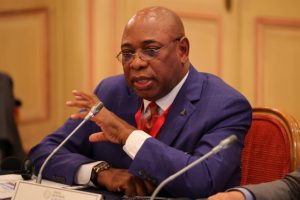
Secretary General of MOWCA
At a time when maritime and port-related issues are taking on strategic importance in West and Central Africa, the Maritime Organization of West and Central Africa (MOWCA) plays a central role in the development and structuring of the regional maritime sector.
On the occasion of the 50th anniversary of MOWCA, we have the honor of engaging with its Secretary General, Dr. Paul Adalikwu, to better understand the organization’s missions, the current challenges in the sector, and the perspectives for the years to come.
Adalikwu spoke to Ismail Aniemu
Q:Mr. Secretary General, to begin, could you please introduce yourself to our readers and tell us about your background in the maritime sector?
My name is Dr. Paul Adalikwu, I am the sixth Secretary General of the maritime organization of west and central Africa and first to occupy the position from Nigeria having been elected in November 2021. I have over 30 years of expertise in corporate governance, maritime strategic and policy issues as well as international development cooperation. I have worked extensively in both Academia and public sectors in the USA, Nigeria, Taiwan, and Côte d’Ivoire among other countries. Prior to my election, I was the Director, Maritime Safety and Security at the then Federal Ministry of Transportation of Nigeria now designated as the Ministry of Marine and Blue Economy. My job description then included oversighting the Maritime Academy of Nigeria, Oron-Akwa Ibom State, the maritime training institution offering technical training education in the maritime, oil and gas industry.
Also, under my purview was oversighting the maritime administration of the country, the Nigerian Maritime Administration and Safety Agency (NIMASA) that has the responsibility of certification of cadets of the Maritime Academy, organizing the Nigerian Seafarer’s Development Programme (NSDP) aimed at addressing issues of shortage of qualified seafarers to enhance the maritime capacity of the country, regulating the cabotage regime in Nigeria among other duties.
I also oversaw the Integrated National Security and Waterways Protection Infrastructure also known the Deep Blue Project (DBP) jointly organized by the Ministry of Defence, Federal Ministry of Transportation and NIMASA, launched by President Muhammadu Buhari in 2021 to combat all forms of maritime crimes like sea robbery, piracy, drug trafficking within Nigeria and the Gulf of Guinea (GOG) area. It was under my watch as Director, that Nigeria enacted the Suppression of Piracy and Other Maritime Offences Act (SPOMOM Act) in alignment with the United Nations Convention on the law of the sea (UNCLOS) which gives the country the legal framework to prosecute maritime offenders.
I equally oversaw the hosting of the Global Maritime Security Conference organized in Abuja, Nigeria in 2019 and attended by global industry stakeholders from over 100 countries. Within the period, I served as the Ministry’s focal point on the International Maritime Organization (IMO), coordinating Nigeria’s participation to all IMO meetings and programmes; and the Maritime Organization of West and Centra Africa (MOWCA) just to mention a few.
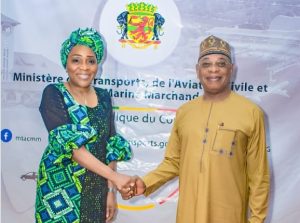
Q:MOWCA plays a vital role in the regional maritime ecosystem. Could you briefly explain what MOWCA is and what its main missions are?
Upon the personal initiative of H.E. Felix Houphouët Boigny, first President of the Republic of Côte d’Ivoire, the Maritime Organization of West and Central Africa (MOWCA) was established as an intergovernmental organization on 7 May 1975, through the Abidjan Maritime Transport Charter, under the designation of Ministerial Conference of West and Central African States on Maritime Transport (MINCOMAR). It has twenty-five (25) member States among which twenty are (20) coastal States and five (5) landlocked.
In 1999 MINCONMAR was restructured and renamed the Maritime Organization of West and Central Africa (MOWCA) as a response to the evolving regional and global maritime challenges especially in the Gulf of Guinea. This change further gave the organization a broader technical and operational mandate.
MISSION:
The promotion of cost-effective shipping services to enable Member States to have control over the cost of sea transport of their foreign trade;
The promotion of maritime security and safety;
The harmonization of maritime law;
The capacity building of actors of maritime transport;
The sustainable funding of the shipping industry;
The facilitation of transit transport to landlocked member States.
VISION:
To be the leading sub-regional organization in Africa advancing the maritime objectives and aspirations of member States.;
SPECIALIZED ORGANS:
The Union of African Shippers’ Councils (UASC): platform for discussions between shippers and sea carriers for the stabilization of freight rates and improvement of quality of maritime transport services (based in Douala);
The Port Management Association of West and Central Africa (PMAWCA): to promote cooperation between the ports in view to improve port efficiency (based in Lagos);
The African Shipping Lines Association (ASLA): to promote shipping companies owned by nationals of the sub-region (based in Cotonou);
The Regional Maritime University of Accra (RMU) and the Regional Academy of Science and Technology of the Sea of Abidjan (ARSTM): for quality training of seafarers, managers and professionals in the maritime and port sector in the MOWCA space.
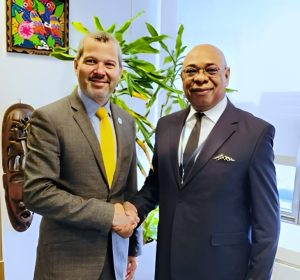
PARTNERSHIPS:
MOWCA has an observer status at the following United Nations system:
International Maritime Organization (IMO)
Conference on Trade & Development (UNCTAD);
It also has Bilateral Cooperation Agreements signed with:
African Union (AU);
International Hydrographic Organization (IHO)
International Association of Lighthouse Authorities (IALA);
Maritime Organization of East, Southern and North Africa (MOESNA)
African Shipowners Association (ASA);
Interregional Coordination Center (ICC) Yaoundé.
Bilateral Cooperation Agreements under consideration with:
Economic Community of West African States (ECOWAS);
Economic Community of Central African States (ECCAS),
The International Criminal Police Organization (INTERPOL);
African Development Bank (AfDB)
African Continental Free Trade Area (ACFTA);
Partnership Agreements signed with:
Federation of West African Chambers of Commerce and Industry (FEWACCI)
Cranz Montana Forum (CMF),
National Transport Facilitation Observatory (OFT) of Côte d’Ivoire;
Achievements and PROJECTS ON GOING:
The Regional Maritime Development Bank, for the sustainable financing of the shipping industry;
The Centre for Information and Communication (CINFOCOM) for real time information sharing on maritime security issues
The Regional Transport Observatory, for the dissemination of information to economic operators and policy makers in the transport chain;
The Integrated Sub-Regional Coast Guard Network, to fight against illegal acts at sea;
The Regional Maritime Code, for the harmonization of legislation and the incorporation of maritime conventions;
The Regional Maritime Fund, to finance maritime policies;
The empowerment of Merchant Marines/Maritime Administrations to improve the performance of maritime administration of member States in their overall management and operations;
A regional cabotage shipping company, to promote intra-African-trade through coastal shipping thus facilitating the economic and socio-economic growth and integration of the sub-region; and
Transformation of MOWCA into African Maritime Organization (AMO).
Q:What are MOWCA’s strategic priorities for the next five years to support the development of the maritime sector in West and Central Africa?
Our priorities are five-legged:
First of all, the strengthening of maritime safety and security in the sub-region. Several maritime casualties are reported every year resulting in massive loss of lives, particularly on inland waterways transport which is a critical mode of transport for populations. It is shocking to see that, to date, people continue to die by drowning, whereas the observation of some safety measures could prevent the massacre. MOWCA is addressing the issue through seminars, conferences and training of ferries operators including crews and dock staff. We are doing this in partnership with member States and global maritime institutions such as IMO, INTERFERRY, etc.
In the same vein it is to be noted that piracy and armed robbery incidents have dropped but are not completely eradicated. Therefore, it is important to address criminality at sea that threatens the maritime transport system, vital for moving the foreign trade of member State. MOWCA is engaged with member States to ensure that the legal framework for prevention and repression of unlawful act is strong and severe enough to discourage criminals.
The second priority of MOWCA is to ensure that member States develop Blue Economy strategies to leverage the potential of the sea for wealth creation. It is proven that well-defined policies around the use of the sea and the sustainable exploitation of its resources largely contribute to economic growth, particularly in developing countries. In this regard, the development of ship ownership to enable significant sovereignty on maritime transport services as well as seafood processing that offers job opportunities are key elements of these strategies. It is imperative.
The third priority is green merchant marine and decarbonization. These concepts are relatively new for the whole maritime community but remain a global concern. Negotiations are still going on in international fora to consider climate change mitigation and the research and development of alternative energies are undergone by scientists all around the world to minimize the impact of shipping industry on the environment. There is a strong need for harmonization of positions and for leveraging resolutions taken at the international level.
The fourth priority for the next 5 years is the implementation of the decision of the General Assembly to transform MOWCA into the African Maritime Organisation. Indeed, the African continent needs to speak with one voice wherever the shipping industry is being regulated and to strengthen cooperation for concerted maritime development policies. This African governance framework is on the table of discussions with major stakeholder such as the Arican Union (AU), the Association of African Maritime Administrations (AAMA) and the Maritime Organisation of East, South and North Africa (MOESNA), with the support of the African Development Bank (AfDB) and the International Maritime Organisation (IMO).
Finally, the Organisation is on the verge of establishing and launching the Regional Maritime Development Bank (RMDB). This institution would provide needed capital to fund maritime infrastructure improvements in the region.
Q:In your view, what are the main challenges currently facing the region’s maritime sector?
The main challenges facing the sub-region are the compliance with international conventions on shipping and environmental protection through domestication and implementation, the lack of funding that results in the low level of ship ownership and shareholding in port operation companies contributing to increase capital flight, clear and coherent maritime development policies to enable suitable leverage of the potentials of the sea, the inadequacy of port infrastructure inherited from the colonial era with the current trends of technological changes in ship operations that doesn’t enable meeting the full needs of sea carriers and cargo owners.
The Gulf of Guinea remains a strategic yet vulnerable area. How is MOWCA collaborating with member states and other partners to enhance maritime security in the region?
Maritime security is a major concern in the sub-region even if the number of incidents has significantly dropped down. The consequences of insecurity are the increase of freight rates and high insurance premium, impacting on the cost of goods to the final consumers.
For the prevention of armed robbery and piracy, member States have been requested to fully implement the ISPS Code, including the acquisition of naval equipment to patrol in the port areas and beyond. Maritime intelligence is developed through the involvement of coastal communities, given that criminals get prepared onshore and they use to berth with small flat crafts on isolated beaches after attacks. Member States are also requested to adopt more stringent regulations for prosecuting criminals based on the model of Nigeria and Togo, with the aim to discourage the perpetration of unlawful acts at sea. To this effect, a Conference on maritime security is scheduled to be held this year to share the model of these 2 countries.
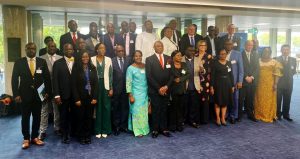
The Yaoundé Architecture adopted by the summit of Heads of State and Government held in 2013 puts the Navies at the frontline of the battle, under the coordination of the ICC. Information sharing is key for combatting criminality. The mechanism put in place by MOWCA to support the Yaoundé Architecture includes the real time security information dissemination among heads of Maritime Administrations through the Centre for Information and Communication (CINFOCOM) to increase the situational awareness at sea.
The combined effect of all these measures resulted in the drop of attacks against refined oil tankers which were mostly targeted. The main challenge now is the kidnapping of crews for ransom, for which the solutions include the creation of job opportunities for unemployed young people in disadvantaged areas.
Q:The issue of decarbonization and the energy transition in maritime transport is gaining prominence. How is MOWCA supporting this shift in West and Central Africa?
Decarbonization and energy transition are a global concern. As such it must be addressed collectively. The figure is that the air pollution caused by Africa is not significant; however, the continent is among the areas most affected by the consequences.
At this stage, our sub-region needs to be pro-active and get prepared through its own research and development programmes, the training of professionals directly concerned by the process (ship agents, mariners, bunker suppliers) and through policies that include sustainability.
Q:The role of women in the maritime sector is evolving slowly. What initiatives has MOWCA undertaken to encourage their participation, and what results have you observed so far?
In line with United Nations SDG 5, Gender equality and empowerment of all women and girls are part of the vision of MOWCA. The sub-region has more and more women who are senior Officers within Maritime Administrations, Port Authorities and Maritime companies. The dynamic is supported by Associations such as WIMAFRICA, WIMOWCA and WILA, enabling a strong contribution to the development of maritime activities. MOWCA is encouraging female applications in the intake of Regional Maritime Training Institutions and capacity building programmes got from cooperation with partners and other stakeholders. Moreover, Women Associations are given the opportunity to participate in conferences and seminars, to share their views and promote new adhesions. Currently, MOWCA has established partnerships and granted observer status to these entities.
Q:How do you foresee the evolution of the maritime sector in West and Central Africa over the next ten years, and what role do you hope MOWCA will play in it?
The shipping industry will remain a key element of economic growth in the sub-region, as long as this part of the world continues to provide agricultural and mineral raw materials to Europe, Asia, North America and beyond and is able to keep its development trends supported by the import of manufactured goods, construction equipment, machinery and vehicles. In the meantime, a new generation of business operators is emerging with the willingness to put the private sector in the heart of economic development. The collaboration with AfCFTA enables starting with intra-African maritime commerce in preparation to deep-sea cargo carriage. The Regional Maritime Development Bank initiated by MOWCA is to support project owners and fund operations through loans at single digit interest rate.
MOWCA’s member States are fully aware of the challenges, and they are investing a lot to create seaports, to improve port efficiency and connectivity with other modes of transport, and to digitalize processes. Qualified manpower is being provided by our training institutions that are diversifying their programmes to include new modules such as Maritime Insurance, Naval Architecture, Maritime Brokering, Shipping Market Analyst, etc. At the institutional level, I remain convinced that the transformation of MOWCA into AMO will be achieved in the very near future to enable harmonious growth of the continental maritime sector.
Any final words?
I am honoured and pleased to see that the 50th anniversary of MOWCA occured during my mandate. My tenure will focus on ensuring that member States are confident in the capacity of their common Organisation to boost the maritime economy. To this effect, potential investors are to be channeled toward the establishment of companies involved in the shipping industry and port operations. I am working to create a suitable business environment by expanding collaboration with Asian emerging economies. I therefore need the support of all member States.
I wish to thank MaritimAfrica for giving me another opportunity to communicate with the member States and the public. Best wishes to JournalNG


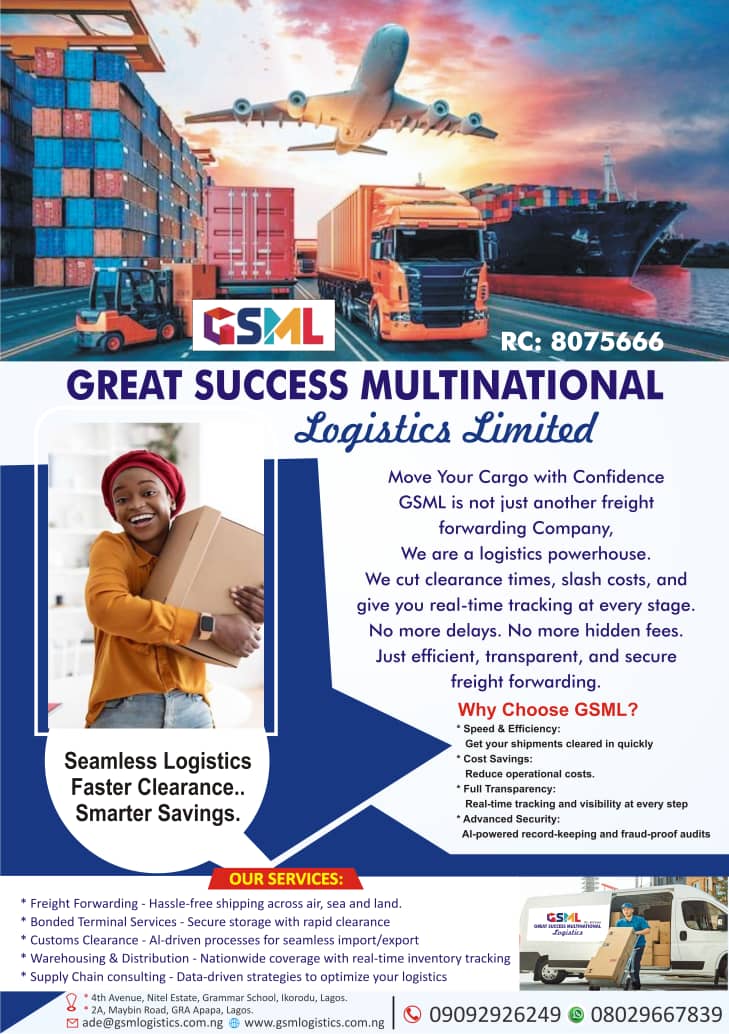



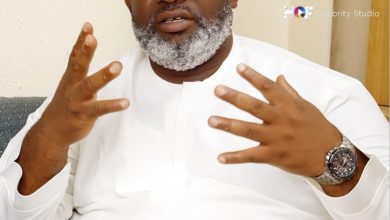
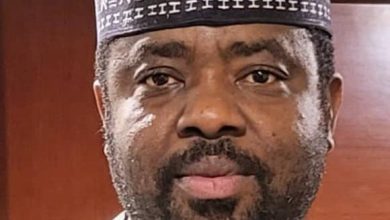
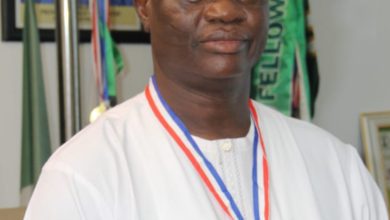
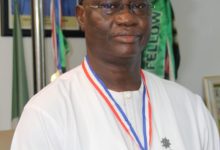
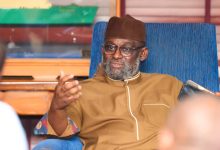
m4hs6o